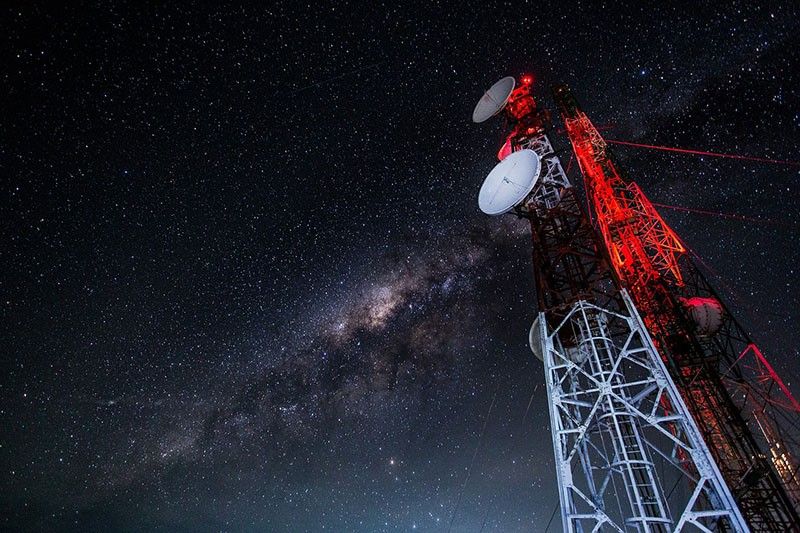Commentary: Safeguarding national security in Public Service Act

In the last couple of weeks, US President Joe Biden released two Executive Orders (EO) pertaining to national security risks presented by China. A few days ago, it was an EO on protecting Americans’ sensitive data from foreign adversaries. In it, he says how China seeks to leverage digital technologies and data in ways that “present unacceptable national security risks while advancing authoritarian controls and interests.”
In early June, President Biden also released an EO expanding the list of Chinese companies that Americans are banned from investing in. The list originally included 31 firms that had links to China’s military and undermined US national security. The latest EO increased that number to 59 and now includes companies developing and deploying Chinese surveillance technologies that facilitate repression or serious human rights abuses.
This list includes the company that developed the facial recognition software used against pro-democracy protesters in Hong Kong in 2019 and the group that developed the surveillance technology used to harvest information and persecute the Uyghurs, a Muslim minority population in northwestern China.
Another company on the list is state-owned China Telecommunications, China’s largest fixed-line service and the third largest mobile telecommunication provider. The US identified the company as part of China’s defense and related materiel sector, supporting its military, intelligence, and other security research and development programs. In addition to being on the investment-ban list, China Telecommunications’ license to operate in the US as a broadband and cloud service provider is currently being reviewed by their Federal Communication Commissions.
Here in the Philippines, China Telecommunications is better known for having a 40% stake in DITO Telecommunity, the country’s third major telecommunications provider. Under the Philippine constitution, foreign ownership in public utilities is limited to a minority stake by the 60/40 foreign ownership rule. Many believe that this rule is all that’s keeping China Telecommunications from increasing its control over DITO.
There is a chance, however, that the rules might soon change.
Currently, there is a measure pending in Congress to amend the Public Service Act (PSA). The proposed amendments would limit the definition of “public utilities” to only included sectors engaged in electricity distribution, the transmission of electricity, and water distribution. With the amendments, the 60/40 ownership rule would only apply to this much narrower set of sectors. In effect, the amendment would open up “public services,” such as transportation, broadcasting and telecommunications, to 100% foreign ownership.
The passage of the amendments to the PSA bill is attractive because it will bring in more foreign investment into the country, foster competition, spur economic activity, and boost job creation amidst the pandemic. At the same time, however, it also raises serious national security concerns.
For instance, many are concerned that China Telecommunications would quickly increase its stake in DITO to 100% if the PSA is successfully amended. If this were to happen, then one of the Philippines’ three major telecommunications networks would be wholly owned by a company controlled by an authoritarian foreign government.
The concern also stems from the fact that Chinese law mandates that all Chinese-owned companies must disclose any information required from them by state intelligence services. For example, the National Intelligence Law of China requires organizations and citizens to “support, assist and cooperate with state intelligence work.” Meanwhile, the drafted Chinese Data Security Law requires companies to disclose details about network security –even in operations outside China.
China’s laws, coupled with its geopolitical agenda, further heighten concerns that opening the telecommunications sector to foreign ownership would expose millions of Filipinos’ sensitive personal data to China’s surveillance and intelligence services.
To address the national security risks associated with the proposed amendments to PSA, the Senate PSA bill includes safeguard provisions not found in the House bill. For instance, the Senate version states that foreign investments in “critical industries,” such as telecommunications, must undergo periodic review by the National Security Council and Congress. They may also face permit or franchise cancellation if they pose a security threat.
The Senate version also includes a ban on state-owned companies owning any capital in “critical infrastructure.” Now, while the ban will apply only to investments made after the effectivity of this Act, these state-owned enterprises will still be prohibited from increasing their pre-existing stake in the company.
The safeguard provisions surrounding “critical industries” were put in place to simultaneously address the need to open the economy to foreign investment and the rising national security concerns associated with increasing foreign ownership. These safeguards, however, are currently only in the Senate version, and there is no guarantee that they will make it into the consolidated version of both Houses.
The two recent orders in the US illustrate how seriously their government sees China as a threat to the national security, foreign policy and economy of the United States. There is no reason why the Philippine government should not treat potential national security risks from China with the same level of caution.
On our Independence Day, no less, let us remember that foreign adversaries are still out there seeking to undermine the Philippines’ national security and democratic values. At the same time, neither should we forget that it is our civic duty as Filipinos to be vigilant and demand that our government and policymakers effectively safeguard against any existing and potential threats to our national security, foreign policy and economy.
- Latest




























